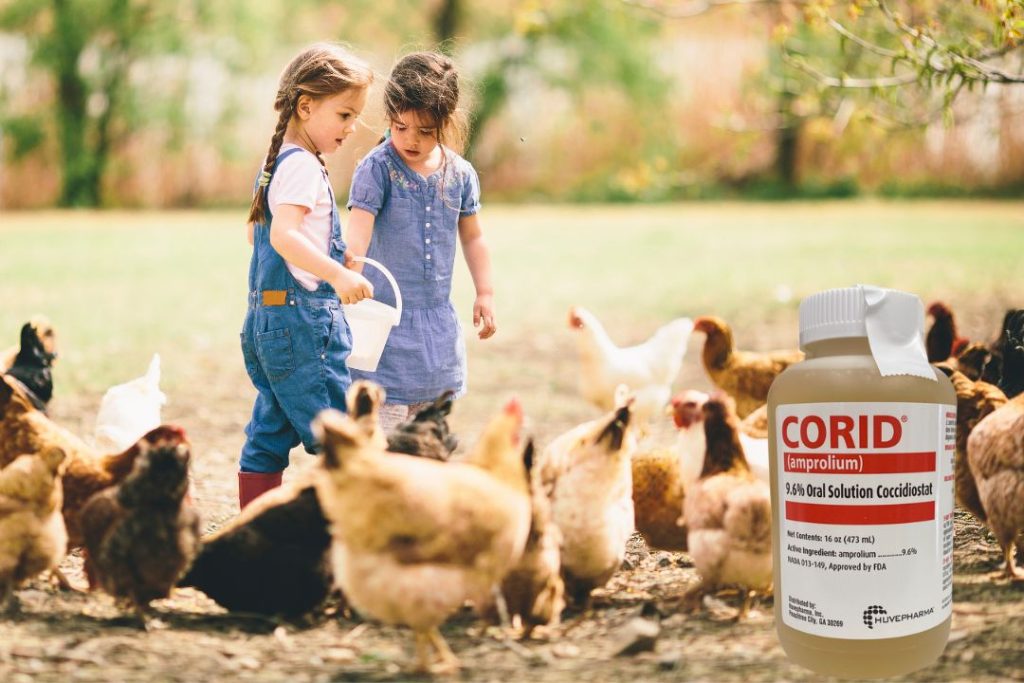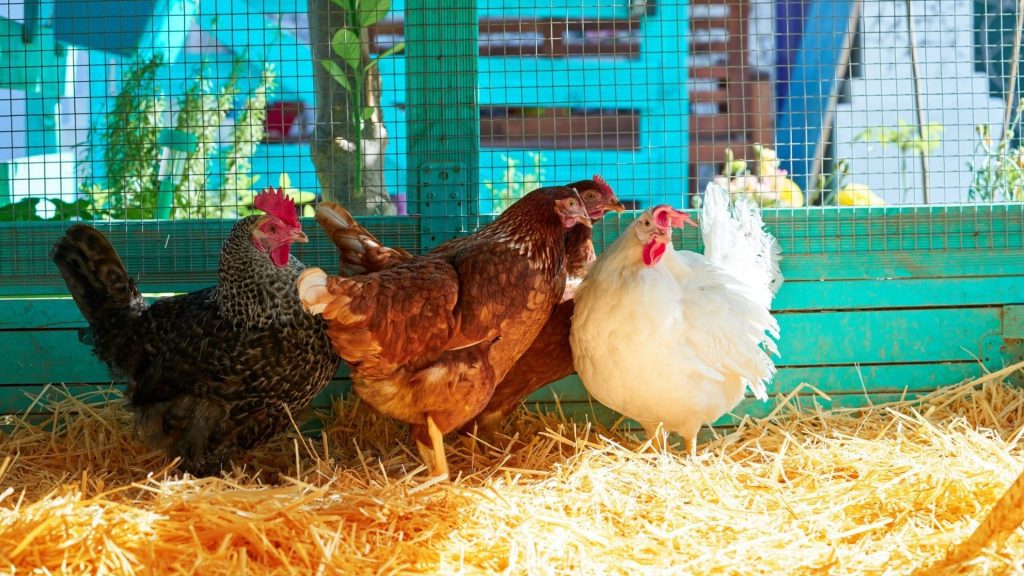Are you a chicken owner concerned about Coccidiosis, a common and potentially fatal disease in poultry? If so, you’ve likely encountered Corid, a widely used medication to combat this parasite.
But how much Corid for chickens should you administer? It is a common question. Pour 1 gallon (3.8 liters) of sterile drinking water and 1.5 teaspoons (7.5 cc) or 1.5 teaspoons (7.5 grams) of Corid liquid solution or powder into a container and mix it. This is the initial stage of therapy.
You should only give your chickens this medicated water as a source of drinking water for five to seven consecutive days.
This thorough guide will give you the dose suggestions and necessary details to assist you in successfully treating and preventing Coccidiosis in your flock.
What Is Coccidiosis?
Protozoan parasites bring on the widespread illness of Coccidiosis. It is called Coccidia. These parasites can seriously harm your chicken’s health and well-being if you delay treating it.
Coccidiosis leads to your chicken’s weight loss, a decline in egg production, diarrhea, dehydration, and even death.
Why You Need To Detect And Treat Coccidiosis Early?
You must identify and treat Coccidiosis as soon as possible to stop the disease’s spread and lessen its effects on your flock. If you know how much Corid to give your hens in quantity, you can ensure your flock’s good health.
How Much Corid for Chickens?
Corid, also known as amprolium, is an FDA-approved medication. It is specifically made to fight Coccidiosis in poultry. It is readily available from your neighborhood vet or farm supply store and comes in liquid and powder form.
Corid Dosage For Treatment
When treating chickens for Coccidiosis, it is essential to administer the correct dosage of Corid to ensure effective treatment. The recommended dosage for Corid treatment is as follows:
- Initial Treatment Phase: Mix 1.5 teaspoons (7.5 ml) of Corid liquid solution or 1.5 teaspoons (7.5 grams) of Corid powder with 1 gallon (3.8 liters) of clean drinking water.
Dosage Of Corid For Prevention
To protect the well-being of your flock, coccidiosis prevention is equally crucial. You can give Corid to your chickens as a preventative precaution if you’ve had coccidiosis outbreaks or wish to safeguard them actively. The recommended dosage for Corid prevention is as follows:
- Preventive Phase: Mix 0.5 teaspoons (2.5 ml) of Corid liquid solution or 0.5 teaspoons (2.5 grams) of Corid powder with 1 gallon (3.8 liters) of clean drinking water. Repeat this preventive phase when necessary or as advised by a veterinarian.
Important Considerations & Best Practices
To ensure the most effective use of Corid and promote the health of your chickens, keep the following considerations in mind:
- Follow the Instructions: Always follow the manufacturer’s instructions and dosage recommendations provided with the Corid medication.
- Water Consumption Monitoring: Monitor the water consumption of your chickens to ensure they are ingesting the appropriate amount of medicated water.
- Isolate Infected Birds: Isolate Infected Birds: To stop the disease from spreading, immediately isolate any hens with coccidiosis signs from the rest of the flock.
- Maintain a Clean Environment: Keep your chickens clean, sanitary since Coccidia can flourish in unclean, wet environments.
- Consult a Veterinarian: It is always advisable to seek professional guidance from a veterinarian if you are unclear about the dosage.
Monitoring And Evaluating the Effectiveness of Corid Treatment
Observing the Response to Treatment
After administering the recommended dosage of Corid to your chickens, monitoring their response to the treatment is crucial. Look for positive signs such as decreased diarrhea, improved appetite, and increased activity levels.
Assessing Your Flock’s Health
Regularly assess the overall health of your flock to ensure the coccidiosis outbreak has been effectively controlled. Watch the chickens’ behavior generally, as well as their weight and egg output.
It could be required to seek the advice of a veterinarian for additional assessment if you observe any lingering symptoms or a decline in their health.
End Note
Coccidiosis may seriously threaten the health and welfare of your chickens. To treat and prevent this condition effectively, you must know how much corid for chickens.
You may protect your flock against the devastating effects of Coccidiosis by adhering to the dose recommendations. Also, follow the recommendations mentioned in the manufacturer guide and implement the best practices.



